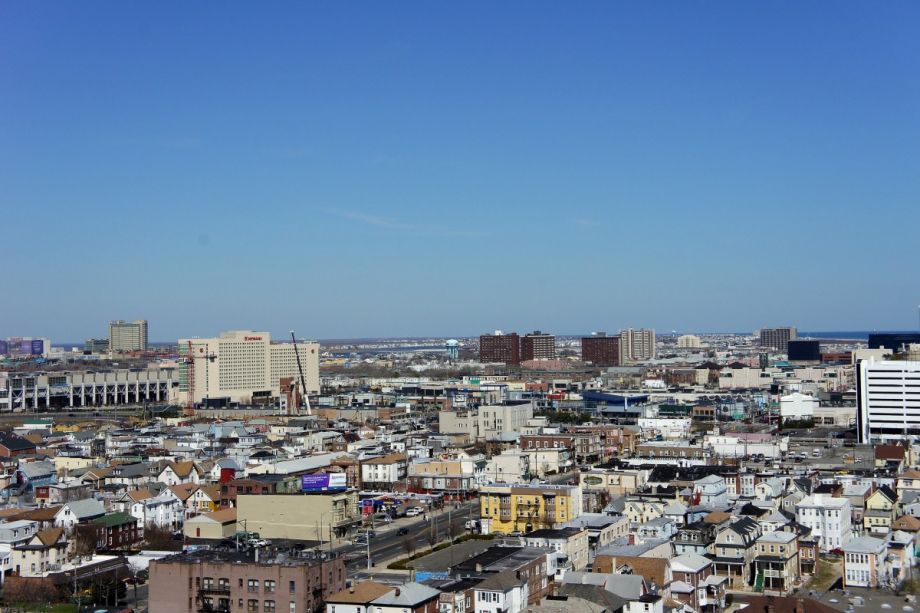In Atlantic City, water is a point of pride. It’s cheap, it’s clean and it’s public. But as the state of New Jersey took over city operations last November, a group of civic groups and nonprofits worried that their municipal water service may be at risk of being sold to a private water supplier. They organized a grassroots campaign to oppose privatization, and last month, their efforts paid off: The city council passed a bill that would require a public vote before the municipal water service could be sold.
Talk of privatizing A.C.’s water goes way back. Lena Smith, an organizer for Food & Water Watch, had been working on a campaign to raise awareness about the importance of a public water supply for two years before the state takeover law, which included mention of the Municipal Utilities Authority (MUA). It was then she knew she needed to kick education efforts up a notch.
“It was like, ‘oh crap, they really want this and they’re going to write it in here,’” Smith says.
So, they got to work. Her group joined with a coalition of neighborhood associations and partnered with the Atlantic City NAACP and the New Jersey ACLU to launch an effort to raise awareness and support for the public water service. Smith began making presentations at the well-attended monthly meetings of the city’s five neighborhood associations.
“Atlantic City has a strong culture of civic associations,” she says.
Smith met with Black Lives Matter organizers, and the Green Party of Atlantic County. She sought legal counsel from the New Jersey Appleseed Public Interest Law Center to determine the best course of action. And they decided on their strategy: to introduce a civic initiative to the city council. A civic initiative is a bill proposed by the people, rather than a council member, for the council to vote on. In order to get their initiative in front of the council, the group needed signatures from at least 15 percent of the population who voted in the last general election. Atlantic City’s population is around 38,000. They set their goal at 1,300 signatures.
Operating out of an old pizza parlor, Smith and other organizers canvassed door to door. They met with church groups and trained residents on how to talk about water with their neighbors. After a three-month-long campaign, they had over 2,400 signatures.
Cities struggling to reduce their debt are often tempted to sell their water systems to make a quick buck. In Atlantic City, where the tax base has dropped from $20 billion to less than $7 billion since 2010 (largely due to the closure of four major casinos), the sale of the MUA could bring in upward of $100 million. Such a prospect is alluring, but studies have found that in the end, privatizing water has shifted the tab onto residents. Food & Water Watch found that in New Jersey, people who are served by private water companies can pay up to 79 percent — on average $230 annually — more than people with public utilities.
“When you give the water to a private corporation, they become accountable to their shareholders, not the public,” Smith says. “And they raise rates, because it becomes a commodity.”
Beyond the economic impact, Smith and others were worried about what the lack of public oversight would do to water quality. The city of Missoula, Montana, for example tried to buy back water service after selling when it realized much of the system was leaking under private ownership.
About 12 percent of Americans are served by privately owned water systems. According to advisory firm Bluefield Research, investor-owned companies bought 53 water and sewer utilities in 2016 and 23 through March 2017.
In New Jersey and a handful of other states, selling water authorities is easy. In 2015 Governor Chris Christie signed a statewide law making it even more profitable for struggling municipalities to sell their water services. This “fair market value legislation” allows cities to sell their service for a price reflecting what a revamped system would look like, instead of its current state, whose value would account for various wear and tear. The higher price tag still offers an attractive deal to companies because they know they can make it up in rate hikes. And while the state used to require a public vote before any municipal water authority could be sold, the Christie administration nixed that requirement.
With the state in charge of Atlantic City, many feared for the future of the MUA. The city had already privatized the sanitation department and reduced benefits for firefighters and police officers to decrease spending.
Smith and others heralded the city council bill as a people’s victory — but held their collective breath for a bit. It was possible that the referendum would be moot. As a stipulation of the state takeover, all initiatives and referendums passed by city council are advisory only — meaning state officials charged with running Atlantic City can disregard them if they see fit.
But a grace period during which the governor could veto has passed, and while a reversal’s not off the table, advocates feel they’re in the clear.
“It would be like political suicide for him to ignore that at this point,” Smith says of Christie. “But he still could.”

Nina Feldman is an independent journalist focused on audio production. She worked as a regular contributor to NPR member station WWNO in New Orleans and as editor at American Routes. Her work has also appeared on Marketplace, Morning Edition and PRI's The World.










